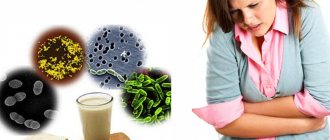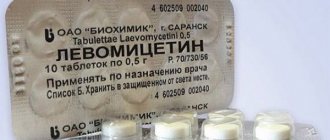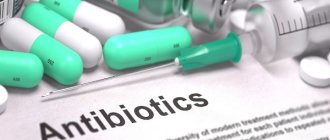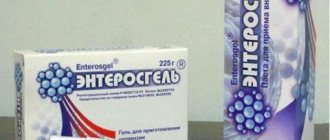Medicines for poisoning. What medicines to take if poisoned
One of the most common diseases that many people suffer without visiting a doctor is poisoning. Most often they occur after eating contaminated or stale food, poisonous mushrooms or plants, poor personal hygiene, or an overdose of medications. Children who put everything in their mouth are most susceptible to this ailment. This kind of trouble often happens to adults, especially during holidays and summer vacations. Therefore, every housewife should have different anti-poisoning medications in her first aid kit in order to be able to provide first aid to herself and her loved ones. In case of severe intoxication or if you suspect an infectious disease, you should not self-medicate, but call a doctor. And in case of minor food poisoning, it is enough to follow a diet for several days and take special medications. But this can be done only if there is no fever, and the condition improves every day.
What medicines to take if poisoned
The first symptoms of intoxication usually appear within a few hours after consuming stale or poisoned foods. The patient feels abdominal pain, nausea and weakness. He begins to vomit and have loose stools. In severe cases, the temperature may rise, blood pressure may drop, and cardiac dysfunction may begin. Not all anti-poisoning medications can be taken at the same time. There is a certain treatment regimen:
1. When the first symptoms appear, you need to rinse your stomach. To do this, drink a large amount of water or medicinal solutions, then induce vomiting. You can use a solution of soda, potassium permanganate or activated carbon for washing.
2. The main danger of poisoning is dehydration. Therefore, you need to drink a lot of fluid, and in order to restore the water-salt balance in the body, special medications are used for this.
3. From the first hours after the symptoms of poisoning appear, it is imperative to take various adsorbents that neutralize poisons and toxins that have entered the body.
4. If severe pain occurs, take antispasmodics; if you have a fever, you can take an antipyretic. But these medications, like antibiotics, can only be prescribed by a doctor.
5. After the end of treatment, it is necessary to take probiotics for some time to restore the disturbed intestinal microflora.
6. What medications help improve digestion in case of poisoning? Anti-diarrhea medications are often required. After relief of the condition and cessation of vomiting, when the patient begins to eat, he needs to take enzymes to improve the processes of digestion of food.
Symptoms of the condition
What to drink if poisoned can be decided based on the symptoms that appear. The sooner adequate treatment is applied, the fewer toxic compounds will enter the bloodstream and the patient will feel better.
The main symptoms of food poisoning include the following:
- frequent loose stools;
- general weakness and lethargy;
- temperature;
- nausea and vomiting;
- dizziness.
How many days does a serious condition usually last? In both children and adults, most unpleasant symptoms disappear completely within 3 days.
When food poisoning occurs, the intensity of symptoms may vary from person to person. Not the least important role is played by the general condition of the body before poisoning, immunity and the type of product that caused the poisoning.
When food poisoning is accompanied by diarrhea, severe vomiting, darkening of the eyes, low blood pressure, and home remedies do not provide relief, it may be better to call an ambulance. Severe diarrhea can be dangerous.
We recommend: Causes of diarrhea with chickenpox and methods of assistance
Sorbents for poisoning
You should start drinking them when the first symptoms appear. Sorbents are the most important medicines for poisoning, because they help remove toxins and poisons and prevent them from entering the blood. Which ones are the most common?
– activated carbon is taken once in the amount of 10-20 tablets, its solution is used to lavage the stomach, then until the condition improves you need to drink 2-4 tablets every few hours;
– the drug “Enterosgel”, in addition to its adsorbing properties, has an enveloping effect and stops diarrhea. It improves the functioning of the entire gastrointestinal tract;
– a very effective product – “Polysorb”. It is taken in the form of an aqueous suspension and has a strong adsorption and anti-intoxication effect;
– the drug “Smecta” also adsorbs toxic substances well in the intestines, in addition, it envelops and protects the mucous membrane and helps with diarrhea.
Restoration of water-salt metabolism
In case of severe vomiting and diarrhea, dehydration may occur, which is very dangerous for health. To replenish fluid loss, you need to drink a lot, preferably mineral water or a solution of soda and salt. But there is a good cure for food poisoning, which contains the right amount of sodium and potassium salts. This is the drug “Regidron”, which is used to prepare the solution. Usually you need to drink about a liter of it during the day. Treatment with Regidron continues until vomiting and diarrhea stop. There are also special medications for child poisoning that fight dehydration well and are indicated for children from infancy. This is the medicine “Glucosolan”, consisting of glucose preparations and a salt mixture, as well as the medicine “Humana Electrolyte”, which not only restores the water-salt balance, but also copes well with toxins.
Antispasmodics for poisoning
Often, in addition to digestive disorders, the patient suffers from severe abdominal pain. To alleviate the condition, the following medications are used:
– the most effective of them is the drug “No-spa”, which quickly relieves spasms of the smooth muscles of the stomach and intestines. You need to drink it 2-3 tablets three times a day;
– sometimes any preparations based on papaverine or drotaverine are also used;
– if you need not only to relieve pain, but also to reduce the temperature, take the medicine “Omez” or “Nimesil”.
When should you call an ambulance?
An emergency call is necessary for some categories of people, regardless of the severity of intoxication:
- pregnant women at any stage of gestation;
- young children under three years of age;
- elderly people, especially if they have serious chronic diseases;
- everyone, regardless of age, if mushrooms or poisonous plants were eaten.
You should also call an ambulance if you have the following severe symptoms:
- the temperature during poisoning rose sharply above 39°;
- the temperature does not subside for more than two days;
- bloody stools or bloody vomiting;
- frequent attacks of diarrhea up to 10 times a day;
- non-stop vomiting;
- if a person has delusions and hallucinations;
- cramps and complete muscle weakness;
- labored breathing;
- too fast heartbeat;
- very severe sharp pain in the abdomen;
- if the patient does not get better within 3 days with home treatment;
- if mild signs of intoxication have lasted for a week and do not go away.
Restoration of damaged microflora
After poisoning, it is very important to take medications that will improve digestion and restore intestinal microflora. You should take probiotics and enzymes for about a week.
1. “Mezim Forte”, “Festal” or “Creon” products are enzyme preparations that help digest proteins, fats and carbohydrates.
2. The drug “Lactofiltrum” improves the condition of the large intestine and stimulates the growth of beneficial microflora. In addition, it increases the body's resistance.
3. Linex contains beneficial lacto- and bifidobacteria that improve the condition of the gastrointestinal tract.
4. The medicine “Hilak Forte”, in addition to populating the intestines with beneficial microflora, also helps to cope with poisons and toxins and is effective against some infectious diseases.
What other medications can you take for poisoning?
For severe diarrhea, in addition to the drug “Smecta”, you can take the drug “Motilium” or “Loperamide”. But you can only do this if you know how these drugs affect you, as they can cause constipation and intestinal obstruction. Sometimes, as prescribed by a doctor, in case of poisoning, antibiotics and sulfonamide drugs are taken: Levomecitin, Phthalazol or Sulgin. There is also a safe intestinal antibacterial agent that is prescribed even to children - the drug “Enterofuril”. But in case of severe poisoning, and even more so if a child has been injured, you should definitely consult a doctor.
Medicines for poisoning
When treating poisoning, an integrated approach is used; it is imperative to take sorbents and means to prevent dehydration; the choice of other medications depends on the symptoms that accompany intoxication.
Drugs to prevent dehydration
Rehydrants are indispensable medicines for any type of poisoning; they prevent the development of dehydration and replenish the deficiency of salts and minerals in the body.
Regidron is a powder with a high content of sodium compounds, the best drug for preventing and eliminating dehydration in adults and children. The contents of one sachet must be dissolved in 500 ml of water, the total amount of solution is calculated taking into account the person’s weight - 10 ml/kg, this volume must be drunk in small sips within the first hour after poisoning. Then the dosage can be reduced to 5 ml/kg. Contraindications: renal failure, intestinal obstruction, cholera diarrhea. Average cost – 400–430 rubles.
Regidron is suitable for children and adults
To treat children, the contents of 1 sachet should be dissolved in 1 liter of warm water, and the child should be given the solution to drink after each bowel movement. The medicine can be stored in the refrigerator for 24 hours.
Adsorbents
Sorbents are first aid for any type of poisoning; they help quickly cleanse the body of toxins, poisons, and bacteria. After taking it, the number of vomiting decreases, and there is a slight decrease in temperature, which often occurs during intoxication.
List of effective adsorbents:
- Activated carbon is a drug capable of absorbing more than 220 different toxins, which allows it to be used in various forms of mass poisoning and is safe for childhood intoxication. To begin with, you need to take 20 tablets one time, then take 10 pills every 2–3 hours for 3–5 days. Contraindications – taking antibacterial drugs, stomach and duodenal ulcers. Possible side effects - diarrhea, constipation, stool becomes black. Price – 60–70 rubles.
- Smecta is a good sorbent of natural origin with an enveloping effect, suitable for treating children, and is several times more effective than activated carbon. The contents of 1 sachet must be dissolved in 100 ml of water and drunk every 6-8 hours for five days. It should not be taken if there is constipation or intestinal obstruction; during treatment, flatulence and vomiting sometimes occur. Price – 150–160 rubles.
- Polyphepan is a wood-based sorbent that effectively removes chemical and toxic irritants. The daily dose is calculated taking into account the person’s weight, the severity of poisoning - 0.5–1 g/kg, it should be divided into 3–4 parts, the required amount should be dissolved in 100 ml of water immediately before use. Duration of treatment is 3–5 days. Contraindications: gastritis, tendency to constipation; allergic reactions may occur during treatment. Price – 75–80 rub.
Important!
Activated carbon should not be given if poisoning with iron-based drugs is suspected - instead of the adsorbent, you should drink milk or 1-2 raw proteins.
Polyphepan - natural sorbent
→ Review of the best sorbents
Enzymes
Medicines from the group of enzymes help against food poisoning, and with alcohol intoxication - they reduce the load on the pancreas.
Mezim – protects the walls of the stomach from the negative effects of hydrochloric acid, accelerates the process of digestion of food, and eliminates the symptoms of intestinal infections. Adults and children over three years of age take 1–2 tablets with meals with plenty of water. Contraindications – pancreatitis, hypersensitivity to the active ingredients of the drug, intestinal obstruction. Possible adverse reactions are bronchospasm, increased lacrimation, skin rashes, nausea, diarrhea, epigastric pain. Average cost – 190–220 rubles.
Mezim is an effective remedy for poisoning
Festal is an effective drug that contains a set of active enzymes, but it can only be taken once, otherwise the pancreas may malfunction. Dosage – 1-2 tablets three times a day after meals for 5-7 days. Contraindications – hepatitis, pancreatitis, tendency to diarrhea, presence of gallstones, intestinal obstruction. During treatment, allergic reactions and dyspeptic disorders may occur. Price – 260–330 rub.
In case of poisoning, non-steroidal anti-inflammatory drugs - Analgin, Nimesil - should not be taken to eliminate pain; they have an irritating effect on the gastric mucosa, which only aggravates the symptoms of intoxication.
Medicines for poisoning and vomiting
Vomiting is a protective reflex, as the body tries to quickly get rid of toxic substances. But with severe food or alcohol poisoning, attacks can be frequent, profuse and uncontrollable, so it is necessary to take antiemetics and medications to slow down peristalsis.
Cerucal is an effective antiemetic drug. You should take the medicine half an hour before meals, 1-2 tablets three times a day. The medicine is not prescribed for bleeding in the gastrointestinal tract, intestinal atony, peptic ulcer, biliary dyskinesia, or tendency to flatulence. Possible adverse reactions are drowsiness, thirst, dizziness. Price – 120–130 rubles.
Domrid - effectively fights nausea and vomiting, eliminates heartburn and abdominal pain, available in tablets for adults and as a children's suspension. The drug should be taken 3-4 times a day, the dosage for a child under 12 years old is 0.25 ml/kg, over 12 years old – 10 ml, adults should take 1 tablet. Duration of treatment – 2 days.
Domrid relieves nausea and vomiting
Contraindications – renal and hepatic pathologies, pituitary tumors, heart failure, intestinal obstruction, gastrointestinal bleeding. Possible adverse reactions are allergies, disturbances in the psycho-emotional state, severe thirst, convulsions, swelling, heart rhythm disturbances, disruptions in the digestive system. Average cost – 100–130 rubles.
You should not induce vomiting if you suspect poisoning with alkali, acids, kerosene, gasoline, if more than half an hour has passed after taking an increased dose of medications.
Antispasmodics
Any poisoning is accompanied by pain and colic in the abdomen - antispasmodics help quickly eliminate unpleasant symptoms by relaxing smooth muscles.
List of drugs:
- No-spa - the medicine acts quickly and has a minimum number of contraindications. Adult dosage - 3-6 tablets per day, the medicine should be taken in 2-3 doses, children under 12 years old can take a tablet in the morning and evening, over 12 years old - 2 pills every 12 hours. Duration of therapy – 2 days. The drug is not prescribed for problems with the absorption of lactose, galactose, low cardiac output syndrome, severe pathologies of the kidneys and liver. During treatment, a decrease in blood counts, heart rhythm disturbances, migraines, and deterioration in sleep quality may be observed. Price – 180–220 rub.
- Platiphylline – eliminates spasms and has a mild sedative effect. Take 1 tablet every 8–12 hours. Contraindications – ischemia, glaucoma, disorders of the thyroid gland, heart, kidneys, liver. Adverse reactions - thirst, urinary retention, headache, dilated pupils, tachycardia. Price – 70–80 rubles.
- Papaverine is an inexpensive medicine that can be used to treat babies older than six months. The frequency of administration for adults and children is the same - 3-4 times a day. Single dosage for children under four years of age – 0.005–1 g, over 5 years of age – 0.01–0.02 g, for adults – 0.04–0.08 g. Contraindications – glaucoma, liver dysfunction, old age, recent traumatic brain injury, benign prostatic hyperplasia. During treatment, blood counts may decrease, drowsiness, allergies, and constipation may occur. Bloating. The average cost is 70–80 rubles.
You should take painkillers with caution - the symptoms of poisoning are similar to an attack of appendicitis, any medications blur the clinical picture, which makes diagnosis much more difficult.
Papaverine can be given to children older than six months
Antibacterial drugs
Antibiotics must be taken for intestinal infections that develop against the background of active growth of pathogenic bacteria. Medicines are prescribed if poisoning and diarrhea are accompanied by high fever, there are blood impurities in the stool, and bouts of vomiting are repeated more than 10 times a day. During treatment, it is strictly forbidden to drink alcoholic beverages, as they reduce the susceptibility of pathogens to the active components of the drugs.
Names of antibacterial drugs:
- Ciprofloxacin is an antibiotic from the fluoroquinol group. In case of poisoning, you should take 500–1000 mg per day, the dose should be divided into 2 doses, take the medicine in the morning and in the evening. Duration of treatment is 5–15 days. Contraindications: pregnancy, breastfeeding, serious kidney and liver diseases. Possible negative reactions are increased drowsiness and fatigue, tremors of the limbs, migraines, dizziness. Price – 40–80 rub.
- Rifaximin is a broad-spectrum antibiotic, almost completely absorbed in the intestine, penetrates into the general bloodstream in minimal quantities, and is available in tablets and suspension form. For children aged 2–6 years, the dosage is 0.2 g of suspension 2–3 times a day, for 6–12 years – 0.4 g twice a day, for adults – 0.6 g once every 8 hours. Duration of therapy is 5–7 days. Contraindications – intestinal obstruction, ulcer. Adverse reactions – nausea, colic, allergies. Price – 670–700 rub.
- Nifuroxazide is a medicine effective for various intestinal infections, does not cause dysbacteriosis, can be used to treat children older than two months. The dosage of the suspension for infants up to six months is 2.5 ml in the morning and evening, up to six years - 5 ml every 8 hours, over 7 years - 5 ml every 6 hours. In tablet form, the drug can be given to children over 6 years of age, 2 pills 4 times a day. Duration of treatment is 7–10 days. The drug has no contraindications, with the exception of individual intolerance. Adverse reactions such as abdominal pain and nausea are rare. Price – 250–300 rub.
Nifuroxazide is an antibacterial agent
During treatment with antibiotics, it is necessary to take probiotics - Linex, Bifiform. These same drugs should be taken as the final stage of therapy for any form of poisoning to restore the balance of intestinal microflora.
If poisoning is accompanied by diarrhea, doctors do not recommend immediately starting to take antidiarrheal drugs, so as not to interfere with the body’s cleansing of toxic substances. You should start drinking fasting agents 48 after the first signs of intoxication appear.
Features of the treatment of alcohol poisoning
In case of severe intoxication with alcoholic drinks, in addition to sorbents, medications against vomiting, and dehydration, it is necessary to take drugs of the symptomatic group.
List of medications for alcohol intoxication:
- Zorex – eliminates alcohol breakdown products, restores liver cells, and has a powerful antioxidant effect. Take 1-3 capsules 3 times a day for 2-4 days. The main contraindications are renal and hepatic pathologies in the stage of decompensation, age under 18 years, individual intolerance to the drug. During treatment, short-term allergic reactions may occur. Average price – 410–450 rubles.
- Biotredin - improves metabolic processes, normalizes brain activity, and quickly eliminates the symptoms of acute poisoning. On the first day, take 4 tablets every 6 hours, then you can reduce the dosage to two pills three times a day. The medicine should not be taken directly during the stage of alcohol intoxication; the drug is incompatible with antidepressants and antipsychotics. Possible adverse reactions are dizziness, increased sweating, allergies. Price – 120–140 rubles.
- Limontar - tablets based on citric and succinic acid, normalize metabolic processes, have a high antioxidant effect, and improve appetite. To eliminate the manifestations of alcohol poisoning, you need to drink one tablet every 2–2.5 hours. First, the drug must be crushed into powder, add soda on the tip of a knife, and dissolve the mixture in water or juice. The medicine should not be taken for glaucoma, angina pectoris, high blood pressure, ischemia, or during an exacerbation of peptic ulcer disease. Adverse reactions - jumps in arterial parameters, discomfort in the epigastric region. Price – 120–140 rubles.
Treatment of any type of poisoning will be more effective if you first rinse the stomach well with a weak solution of potassium permanganate - 2-3 crystals per 1 liter of water.
Limontar quickly treats alcohol poisoning
The most effective medications prescribed for food poisoning
Food poisoning is associated with the consumption of low-quality and expired products. They also arise due to the presence of pathogenic microorganisms in food, which include E. coli and salmonella. When the first signs appear, it is necessary to take medicine for food poisoning in order to stabilize the water-salt balance and prevent life-threatening dehydration. Depending on the symptoms and degree of intoxication, patients may be prescribed other drugs, the use of which is possible only with the consent of the doctor.
Classification of food poisoning
According to ICD 10 it is encrypted as A05. Pathology, depending on the etiological factor, is usually divided into two categories: microbial and non-microbial. All subtypes and reasons are described in more detail below in table form.
| Group | Form | Cause |
| Microbial | Toxic infection | Escherichia coli |
| Klebsiella | ||
| Proteus | ||
| Shigella | ||
| Salmonella | ||
| Influenza virus (rare) | ||
| Toxicosis | Clostridia | |
| Staphylococcus | ||
| Streptococci | ||
| Aspergillus | ||
| Non-microbial | Products of plant origin | Vegetables, fruits, grains containing large amounts of pesticides, treated with toxic smoke (watermelons, potatoes) |
| Poisonous mushrooms (toadstool, fly agaric) | ||
| Inedible berries (wolf's bast, lily of the valley, raven's eye) | ||
| Animal products | Marine: puffer fish, urchin fish, jellyfish, some shellfish | |
| Reptiles (snakes) | ||
| Poultry, meat, treated with antibiotics or treated with chemicals | ||
| Poor quality drinks | Alcohol | |
| Juices from poisoned fruits and vegetables | ||
| Drinks heavily loaded with dyes and preservatives |
In addition, in some sources food poisoning is divided into acute and chronic. The latter type involves regular consumption of contaminated expired products and food containing chemical compounds (mercury salts, ammonia), but in such quantities that are not capable of causing a violent reaction in the body, but functional and structural changes in organs are observed.
Medicines taken for food intoxication
For intestinal and gastric intoxication, it is recommended to prescribe the following medications:
- anti-dehydration medications;
- sorbents;
- enzymatic preparations;
- antispasmodics and antiemetics;
- antibiotics for bacterial forms of the disease;
- medications that restore intestinal microflora.
Factors in choosing a drug for food poisoning are the specificity of the symptoms, the complexity of the course, the age of the patient, and the duration of intoxication in the body.
Anti-dehydration medications
The pathology is almost always accompanied by severe diarrhea, which results in the body losing a large amount of fluid. To restore the water balance, one of the most well-known remedies for food poisoning is recommended - Regidron.
The drug in powder form is diluted in 500 ml of clean water and taken within the first hour from the onset of symptoms of intoxication. It is necessary to take the medicine orally at the rate of 10 ml per 1 kg of weight. The medication is prohibited if the patient has renal failure or cholera diarrhea. The drug is also not recommended for the development of intestinal obstruction.
First aid for diarrhea
Regardless of whether you had to treat an intestinal disorder without fever, or the patient also has this symptom, first aid is always the same. It consists of several stages:
- Stomach cleansing.
- Restoring water balance.
- Purgation.
- Diet.
Although medications for poisoning can significantly improve a person’s well-being, proper assistance to the body will promote a speedy recovery and help avoid the development of complications.
How to cleanse your stomach?
The human body is a unique structure. It is capable of cleaning itself when some low-quality product enters the digestive tract. When a person eats something inappropriate, nausea usually sets in. But this may not be enough to fully cleanse the stomach.
Although the body gets rid of a significant amount of toxic substances with the first vomiting, this does not provide complete relief. Therefore, a person should immediately try to drink up to half a liter of clean, warm water. You can add a granule of potassium permanganate or soda to it on the tip of a knife. Abrupt consumption of such a volume of liquid will provoke repeated vomiting, which will help the body get rid of toxic compounds remaining in the stomach.
Although a single gastric lavage has a positive effect, it is advisable to repeat this manipulation several times. You should continue until clean water comes out of the stomach. If the urge to vomit has stopped, the procedure should also be stopped.
How to restore fluid volume in the body?
The greatest danger to human life with intestinal disorders of any etiology is dehydration. Water leaves the body along with toxic compounds. It is important to replenish its volume correctly.
To maintain a normal balance, experts recommend drinking small sips of water after each attack of diarrhea or vomiting. For rehydration we recommend:
- saline solutions;
- glucose-salt compositions;
- boiled water;
- mineral water.
Milk, sweet drinks, tea or coffee are not suitable for these purposes.
How to cleanse the intestines?
In addition to cleansing the intestines naturally, special preparations are taken - sorbents. In addition, it is important to stop using medications that stop diarrhea. It is important to understand that diarrhea is a natural protective reaction of the body to the penetration of pathogenic microorganisms or toxic substances. If you stop diarrhea immediately, harmful compounds will remain inside the body, which will continue to poison the person, and the treatment will take longer and more difficult.
We recommend: Why does diarrhea occur at night?
The table below describes the main sorbent drugs that are taken for food poisoning.
| A drug | Features of application |
| Activated carbon | The medicine is taken at the rate of 1 tablet per 10 kg of weight. The drug is not suitable for people suffering from peptic ulcers. Can be taken only after cleansing the stomach. After the first dose, use of the medicine can be continued every few hours, 2-3 tablets. The drug removes toxins and normalizes intestinal motility. |
| Smecta | Effective sorbent. Available in powder form. The composition is diluted in warm clean water and drunk. The drug coats the intestinal walls, helping to relieve irritation. Diarrhea gradually weakens and pain decreases. It is not advisable to use at temperatures. |
| Atoxyl | The drug binds toxic compounds and carefully removes them out. It is effective not only for diarrhea, but also for nausea and vomiting. Medical practice proves that in 90% of cases, 15–20 minutes after using the medicine, nausea and vomiting disappear, and the frequency of bowel movements decreases. Repeated use of the product is most often not required. Can be used even at high temperatures. |
| Enterosgel | Perfectly coats the walls of the stomach and intestines, relieves irritation, and restores digestive processes. Available in the form of a suspension. Do not use for intestinal atony. |
Now it is much clearer what to do if a person is poisoned. Treatment will be more effective if you strictly adhere to the diet.
Therapeutic diet
If we are not talking about treating a small child, you can arrange a day of fasting. What do they eat during this period? Pure drinking water, herbal teas and infusions are acceptable. In the first hours of acute diarrhea, it is better to avoid other foods.
What to eat after the acute phase has passed? You can gradually introduce lactic acid products, low-fat cottage cheese and kefir. Banana is allowed as a fruit. You can prepare low-fat broth and crackers. We also recommend that you read: what can you eat if you have diarrhea?
If you eat right during diarrhea, the symptoms of the disease will quickly subside. You can use drugs like Loperamide or Levomycetin only as a last resort, and then only after consulting a doctor.
Causes of diarrhea
In case of poisoning, diarrhea can be:
- Secretory, when under the influence of toxic substances the transport of chlorine and sodium ions in the cells of the mucous membrane is disrupted. As a result, they accumulate in the intestinal lumen, increasing the osmotic gradient and causing the release of water into the intestinal cavity. In this case, the stool becomes watery, but without pathological impurities (blood or mucus). Secretory diarrhea is characteristic of intestinal infections caused by viruses;
- Osmotic, which is provoked by destabilization of fluid absorption processes in all parts of the intestine - almost the entire volume of water drunk by the patient is excreted along with the stool. It becomes abundant and watery. Osmotic diarrhea most often develops under the influence of parasitic microorganisms (helminths);
- Invasive, arising as a result of inflammatory processes in the large intestine, when a violation of the mechanism of fluid absorption is observed only in this area. Diarrhea is not too profuse, but contains pathological impurities;
- Motor, characterized by an increase in intestinal motor activity under the influence of increased regulatory influences (cholecystokinin and serotonin). The stool is semi-formed and comes in small portions (no more than 300 ml);
- Exudative (rarely occurs in case of poisoning, more often in chronic gastrointestinal diseases). It occurs as a result of inflammation and ulceration of the mucous membrane of the large intestine, and is characterized by a small amount of feces, the presence of pus, mucus, protein exudate and blood.
Self-administration of medications for diarrhea is prohibited in the following cases:
- a small child, a pregnant or lactating woman has fallen ill;
- black diarrhea mixed with blood (a sign of internal bleeding);
- diarrhea continues for more than a day;
- large bowel movements more than 6 times a day;
- diarrhea is accompanied by high fever (more than 38 degrees), vomiting, skin rash, severe pain in the abdomen, and loss of consciousness.
Food Poisoning Clinic
The severity of symptoms depends mainly on two factors: the pathogenicity of the microflora or the concentration of the toxic substance and the reactivity of the body. For some, the disease may be latent, that is, without any symptoms, but most often the following complaints and changes appear:
- increase in body temperature up to 39-40 degrees;
- headache;
- decreased or lack of appetite;
- weakness, lethargy;
- nausea;
- vomiting, which brings relief;
- upset stool (diarrhea);
- abdominal pain;
- malaise;
- excessive sweating;
- pale skin;
- increased heart rate;
- increased blood pressure.
In severe cases, a lot of complications develop, the most typical being infectious-toxic shock. In this case, the clinic is supplemented with:
- violation of daily diuresis (decreased volume of urine excreted);
- confusion;
- hypotension;
- hallucinations, delusions;
- signs of dehydration: thirst, dry mucous membranes.
This condition requires emergency measures, so it is necessary to immediately call an ambulance, which will take the victim to the hospital.
What to do with diarrhea: treatment directions
Taking into account the cause of diarrhea in case of poisoning, the following drugs are used:
- enterosorbents - drugs for binding and removing toxins from the intestines;
- antibiotics - to destroy pathogenic microorganisms during intestinal infections;
- probiotics – drugs for restoring healthy intestinal microflora in case of dysbacteriosis;
- medications that slow down peristalsis;
- herbal preparations for normalizing stool - with an astringent and tanning effect.
Available medications for diarrhea: list of enterosorbents
Enterosorbents are often used for diarrhea at home, as they have a complex effect on the intestines:
- these drugs bind toxins that enter the intestines from the outside, as well as from the blood;
- absorb harmful substances in the intestines, released along with digestive juices;
- bind metabolites formed directly in the gastrointestinal tract;
- change the volume of indigestible residue;
- have a catalytic effect.
Medicines
Medicinal effects on the body that has suffered poisoning are not required in all situations: mild food intoxication only involves taking sorbents in order to quickly get rid of the remains of harmful substances. If the patient's condition is severe, stronger symptomatic medications may be needed, but it is advisable to select them with a doctor. Gastroenterologists use the following groups of drugs:
- Adsorbents (Enterosgel, Atoxil) - bind and remove toxins, are used to treat children and adults, but are not prescribed for fever. Be sure to space it out with other medications (for 1-2 hours).
- Rehydrants (Regidron, Acesol) - restore water and electrolyte balance, used for any poisoning. Administration is oral or infusion, depending on the patient’s condition.
- Painkillers (Drotaverine, Duspatalin) are antispasmodics that are taken only for severe acute pain that accompanies attacks of diarrhea.
- Antiemetics (Metoclopramide, Cerucal) - doctors call vomiting a natural defense reaction of the body that helps get rid of toxins, but if the attacks are too intense, it can be blocked with medications.
- Antidiarrheals (Kaopectate, Loperamide) - used only for frequent attacks of diarrhea that cause severe dehydration.
- Antipyretics (Ibuprofen, Paracetamol) are used rarely, mainly in young children and only when the patient knows that the temperature is not caused by an intestinal infection.
- Probiotics (Linex, Bionorm) are used at the final stages of treatment to restore the gastrointestinal microflora.
From poisoning and vomiting
The pharmacological group of antiemetics includes several types of drugs that affect nervous regulation. They mainly block dopamine, serotonin, and histamine receptors, reducing the excitability of the vomiting center, or work as local anesthetics. Cerucal is considered a popular and effective antiemetic drug for poisoning: it works on metoclopramide (10.54 mg per tablet and 5.27 mg per 1 ml of solution), used orally or intravenously. Key points:
- Pharmacological action: central blocker of dopamine (D2) receptors and serotonin, causes inhibition of the trigger zone of the vomiting center.
- Indications: hiccups, nausea, vomiting of any origin, gastroesophageal reflux disease, gastric atony, gastric dyskinesia, gastric ulcer.
- Dosage: 1 tablet for adults half an hour before meals, washed down with warm water, up to 4 times a day (for frequent bouts of vomiting). Children over 14 years old should take no more than 3 tablets per day. The intravenous solution is administered slowly up to 3 times a day, 10 ml at a time.
- Contraindications: bleeding in the gastrointestinal tract, intestinal obstruction, extrapyramidal disorders, age under 2 years.
- Side effects: urticaria, stool disorders, dry mouth, tachycardia, fluid retention, drowsiness (with frequent use).
An important advantage of Cerucal and other drugs containing metoclopramide (Metamol, Metoclopramide, Reglan) is the rapid effect on nausea and vomiting of any etiology, excluding vestibular - after half an hour the condition returns to normal. Less commonly, doctors prescribe Osetron, which uses ondansetron, as an antiemetic drug. Unlike metoclopramide, this substance does not cause an increase in prolactin levels, but its mechanism of action on vomiting is not fully understood. Instructions for use:
- Indications: nausea and vomiting of postoperative origin or caused by taking cystostatic drugs, radiation therapy.
- Dosage: daily dose – 8-32 mg for adults, it is advisable to take no more than 8 mg at a time.
- Contraindications: pregnancy, age up to 2 years (tablets) and up to 12 years (large dosages), lactation.
- Side effects: headache, arrhythmia, constipation.
Medicines for poisoning and diarrhea
In order to relieve diarrhea, attacks of which occur more often than 2-3 times a day, you can use decoctions of astringent herbs or drugs with antidiarrheal properties, which are based on loperamide, attapulgite, racecadotril, smectite. Some of them are also sorbents. Mostly in case of poisoning, gastroenterologists advise taking medications based on attapulgitis, which include Neointestopan (630 mg per 1 tablet):
- Pharmacological action: adsorption of liquid and pathogenic microorganisms with the toxins they produce in the intestines, a general reduction in intoxication, normalization of intestinal flora, thickening of liquid contents.
- Indications: acute diarrhea due to food poisoning, imbalance of intestinal microflora.
- Dosage: initial dose – 4 pcs. after defecation, then 2 pieces, washed down with warm water. The daily dose does not exceed 14 pcs. for adults. In children 6-12 years old, dosages are reduced by 2 times.
- Contraindications: fever, intestinal obstruction, parasitic diarrhea, children under 3 years of age.
- Side effects: constipation.
Kaopectate is similar in pharmacological action to Neointestopan, since it is also based on attapulgite, but 1 tablet contains 750 mg of the active substance, which makes this drug more effective (in terms of speed of action). Unlike Neointestopan, Kaopectate is also available in the form of a suspension, where the same concentration of the active ingredient (750 mg) is achieved when taking 15 ml. Indications and contraindications are identical to those described above; you only need to pay attention to the dosage:
- Adults: 2 tbsp. l. suspensions or 2 tablets up to 6 times a day, after each bowel movement.
- Children 6-12 years old: 1 tbsp. l. suspensions or 1 tablet up to 6 times a day.
- Children under 6 years old: no more than 1 tsp. suspensions up to 6 times/day.
Painkiller
If the acute stage of intoxication is accompanied by severe pain, causing suffering during the urge to defecate and between them, doctors allow the use of antispasmodic drugs. The most famous remedy of this type is No-shpa (analogs are Drotaverine, Spasmol). It works on drotaverine, is a myotropic antispasmodic, relaxes the intestinal muscles, is allowed in case of intolerance to M-anticholinergics. Features of use:
- Indications: spasms of smooth muscles of the gastrointestinal tract and urinary tract.
- Dosage: 1-2 tablets no more than 3 times a day.
- Contraindications: hypotension, lactation, pregnancy, renal, heart and liver failure.
- Side effects: decreased blood pressure, dizziness, arrhythmia, skin reactions.
- Birch sap at home
- Margarine cookies: recipes
- Brine for cabbage
Less well known are antispasmodics containing mebeverine (Duspatalin, Sparex), prescribed only for abdominal pain. They also have a myotropic effect, but do not cause a drop in blood pressure or affect normal intestinal motility. In addition to them, the anticholinergic Platifillin, used for spasms of smooth muscles of the abdominal organs and vascular spasms, or the combined drug Spazmalgon (containing metamizole sodium, pitofenone hydrochloride and fenpiverinium bromide) can be used as painkillers for poisoning:
- Pharmacological action: analgesic, antispasmodic.
- Indications: gastroenteritis, colitis, unspecified pain in the abdominal area.
- Dosage: up to 6 tablets per day, 1-2 per dose. After eating, drink water.
- Contraindications: heart, liver, kidney diseases, pregnancy, lactation, age under 6 years.
- Side effects: headache, tachycardia, urticaria.
Sorbents
The most important part of the treatment of poisoning is taking adsorbent drugs, which help remove toxins from the body, but they are drunk only in the absence of intense vomiting. Other medications can be taken no earlier than 2 hours later, since otherwise, in addition to toxins, beneficial substances will also be captured. The safest and most accessible adsorbent is white or black activated carbon (and drugs based on it: Carbactin, Sorbex), but more often gastroenterologists recommend Polysorb MP, on silicon dioxide:
- Pharmacological action: sorption and detoxification, binding and removal of exogenous and endogenous toxins, pathogenic bacteria, food allergens, heavy metal salts.
- Indications: acute and chronic intoxication of any etiology, intestinal infections, poisoning with toxic substances.
- Dosage: calculated individually, 0.1-0.2 g of powder per kg of weight with a frequency of up to 4 times a day, prepare the suspension exactly before use. Take the medicine 1 hour before meals.
- Contraindications: exacerbation of peptic ulcer, intestinal atony, bleeding in the gastrointestinal tract.
- Side effects: allergic reactions.
The disadvantage of Polysorb is the powder format, which requires dilution (the required amount is dissolved in 50-100 ml of water). Similar actions should be performed with the drugs Smecta and Neosmectin, which work on smectite and, in addition to adsorption, perform an antidiarrheal function. Paste-like Enterosgel (based on polymethylsiloxane polyhydrate) is more convenient to use:
- Pharmacological action: sorbs and removes medium molecular toxins, has a detoxification effect.
- Indications: acute and chronic intoxication of any etiology, intestinal infections, poisoning with toxic substances.
- Dosage: 22.5 g (1.5 tbsp.) with a frequency of 3 times/day. Daily dose – 67.5 g. Drink by stirring in warm water.
- Contraindications: intestinal atony.
- Side effects: nausea, constipation.
Anti-diarrhea tablets and how to use them
To stop diarrhea at home, use:
Loperamide is an inexpensive drug for diarrhea, available in several dosage forms (tablets, syrup, solution, capsules). Blocks opioid receptors, normalizes peristalsis and tone of the anal sphincter, reduces the urge to defecate. 1-2 capsules are prescribed, depending on the patient’s condition.
Diara - anti-diarrhea tablets based on loperamide, valid for up to 6 hours. Adults are prescribed 2 tablets initially and one more after each bowel movement. Use is prohibited in the first trimester of pregnancy.
Imodium is a diarrhea remedy in the form of capsules based on loperamide. Prescribed to adults and children over 12 years of age only after medical consultation. May cause a number of complications, including intestinal obstruction.
Enterobene - solution, tablets or capsules for diarrhea containing loperamide. Can be used from the age of two (in solution).
Fthalazol is an antimicrobial drug with a broad spectrum of action. Effective for dysentery, diarrhea and other intestinal infections. Acts primarily in the small intestine; absorbed slowly. Can be prescribed to children from two months of age.
Stopdiar or Enterofuril are antimicrobial drugs for diarrhea in young children. The active substance is nifuroxazide. Safe for infants from one month of age.
Levomycetin is a fast-acting antibiotic for diarrhea, available in the form of tablets or powder used for the preparation of intravenous and intramuscular injections. The drug helps within 3–4 hours. Powerless against viruses and fungi, prohibited during pregnancy and children at an early age.
Hilak Forte is available in drops, which are dissolved in water and taken three times a day. A probiotic based on biosynthetic lactic acid and its buffer salts, acting exclusively in the intestinal lumen; accelerates the absorption of food, prevents the spread of pathogenic microflora.
In addition to taking medications to normalize stool, in case of poisoning it is important to replenish the volume of fluid in the body. To do this, you can drink teas, fruit compotes or low-mineralization water, but it is better to give preference to glucose-salt solutions - pharmaceutical or homemade. During acute diarrhea, it is advisable to abstain from eating for at least the first 6 hours. In the future, nutritional adjustments are required. Dairy-free porridges (especially rice) are useful, as well as berry or oatmeal jelly, which helps restore the mucous membrane. Traditional recipes - herbal infusions and decoctions - should be used only after prior consultation with your doctor.
Antibacterial drugs for poisoning
Antibacterial medications are sometimes prescribed for poisoning. It is advisable to take them only for intestinal infections, accompanied by attacks of loose stools and vomiting mixed with blood.
No. 1. Rifaximin
The antibiotic has a wide spectrum of action. The active substances are completely absorbed into the intestines, penetrating into the bloodstream in small quantities. You need to drink 6 mg. every 8 hours. The course is a week. It is worth saying that taking Rifaximin would be the right decision in case of bacterial poisoning.
No. 2. Nifuroxazide
The medicine shows high effectiveness against infections of various etiologies. After treatment, it does not cause dysbacteriosis. The composition is safe and has virtually no adverse reactions. The same applies to contraindications, with the exception of individual intolerance. Reception is carried out 4 times a day for 10 days.
No. 3. Ciprofloxacin
The drug belongs to the group of fluoroquinols. It helps against poisoning due to the complete destruction of pathogenic microflora. The daily norm is 500-1000 mg. The dosage must be divided into 2 doses. It is better to take the medicine after waking up and shortly before going to bed. Therapy lasts 5-15 days depending on the patient’s well-being.
Important!
When treating with antibiotics, it is important to take probiotics in addition. “Bifiform” and “Linex” are considered the best. The products prevent the development of dysbacteriosis. The balance of intestinal microflora is completely restored.
You should not take medications for diarrhea if the condition is accompanied by loose stools. You must wait 2 days for the body to cleanse itself of toxins. Only after this is it allowed to take medications with binding properties. If necessary, antibiotics and other medications are prescribed.
Source
Poisoning with pills: what to do at home
Pill poisoning: risk factors
Pill poisoning (also called overdose) is an extremely serious medical condition that poses a high risk to life. This is due to the fact that an overdose of pills causes a triple blow to the body:
- General intoxication of the body occurs from an excess of the active substance. As a rule, any pill is toxic, but in adequate dosage the liver can cope with these toxins. When the liver is overloaded with toxins, intoxication of the body begins, which leads to a sharp deterioration in well-being and general condition.
- Any medicine has a certain effect, therefore in case of poisoning, an excessive profile effect of the drug occurs. As a rule, the symptoms of an overdose correspond to the disease state in the direction in which the pills act. Simply put, if a person is poisoned by blood pressure-lowering pills, the symptoms will correspond to a hypotensive crisis.
- Allergic reaction. In case of drug poisoning, an allergy may well develop.
The question arises, what to do if you are poisoned by pills? This question sounds especially menacing in another context: what to do if a child is poisoned? However, in this article we will look at general actions aimed at saving lives in the event of an overdose.
What to do if you are poisoned by pills?
Of course, the first step is gastric lavage. Inducing vomiting is the minimum that any patient in such a situation can and should do. Unfortunately, vomiting is not a panacea, since by the time symptoms appear, a fair amount of toxins have already entered the bloodstream.
It is imperative to establish which tablets the poisoning occurred with. This is necessary in order to predict possible side effects. Based on data about which drugs were taken, treatment tactics can be formed.
As a rule, treatment is symptomatic. Liver maintenance therapy is carried out (Essentiale intravenously) and the introduction of reverse-acting drugs. For example, if an overdose is caused by blood pressure-lowering drugs, drugs that stimulate the heart are administered.
It is important not to miss the moment when to ask for help. An ordinary person can understand what to do in case of poisoning with pills only if the poisoning is mild, caused by either a small dose or a not too toxic drug. If you need to administer antidotes, you cannot do it yourself.
In conclusion, we present the main drugs, an overdose of which is very dangerous. These are sleeping pills, beta blockers, nootropics, antidepressants, painkillers, drugs that increase blood pressure and affect the rhythm of the heart.
Related video: Drug poisoning
Drug poisoning 2
What to do in case of drug poisoning?
In case of drug poisoning, you need to drink a large amount of water (at least two liters). Induce vomiting . Rinse the stomach again . It's better to do this three times. Then to drink activated carbon, or a sorbent based on natural silicon “ Polysorb ”. Call an ambulance . But it must be called before gastric lavage. After all, until she gets there. Sometimes they don’t have gas, sometimes there are traffic jams, sometimes they are long distances, sometimes they have a lot of calls. And be sure to tell the doctor what pills you took so that he can use the correct antidote.
What to do if you have food poisoning
Feeling unwell, the body feels like it’s turning inside out - these can be the consequences of a dubious pie at the station. Many people have experienced food poisoning. But few people know how to deal with this disorder. We will tell you what food poisoning is and what to do if you become intoxicated.
- Food poisoning infections (FTI). Occur due to consumption of food contaminated with pathogenic microorganisms. For example, stale food. Failure to comply with sanitary and hygienic standards can also provoke PTI.
- Toxic (non-infectious) poisoning. They occur when natural or chemical toxins enter the body with food. For example, poison from inedible mushrooms and plants, as well as chemicals.
The last type of poisoning is the most dangerous. You shouldn't fight them on your own. If you suspect non-infectious poisoning, you should immediately consult a doctor.
Also, regardless of the type of poisoning, qualified medical care is necessary for pregnant and lactating women, children and the elderly.
But usually people encounter toxic infections that can be treated at home. Next, we will talk about what steps to take to cope with PTI on your own.
Symptoms and pathogenesis
The course of food poisoning depends on the age and general condition of the person, as well as the type of pathogenic bacteria. But the general picture is this:
- obsessive nausea;
- repeated vomiting;
- weakness, malaise;
- changed complexion;
- diarrhea;
- chills;
- elevated body temperature.
PTI is characterized by a short incubation period. The first signs appear 2–6 hours after eating and progress quickly without treatment.
Reasons for the development of poisoning
Treatment will directly depend on the reasons that caused the unpleasant condition. In case of poisoning and diarrhea, assistance measures must be quick, clear and correct. Not everything depends only on the pills you take.
There can be many toxic factors. Most often, assistance must be provided due to poisoning:
- mushrooms;
- mercury;
- alcohol;
- paint.
If a person is poisoned, this can also be caused by uncontrolled use of pills or even the most ordinary foods. A poisoned person might not even think about how great the impact of expired food is, or how important it is to quickly put cooked dishes in the refrigerator. This rule especially applies to meat and dressed salads.
All vegetables and fruits can also cause food poisoning. To avoid this, you need to wash them thoroughly after purchasing, and pour boiling water over the greens. Since plant food is located close to the ground during the ripening process, it can become a source of infection by various helminths.
Poisoning and subsequent intoxication can be caused by improperly prepared meat and fish. Pathogenic microorganisms die only with complete heat treatment. Therefore, there is always a high risk of being poisoned by undercooked meat products or sushi.
What to look for?
Inedible or poisonous mushrooms can cause very severe poisoning. You should never try mushrooms raw or collect unknown or questionable types of product. The same rule applies to wild berries. Some can be poisonous, causing severe poisoning.
Symptoms of mushroom poisoning are usually pronounced, and in addition to the usual symptoms, hallucinations may appear. In this case, you should call an emergency ambulance and get medical advice.
What to do if poisoning occurs due to mercury entering the body? First aid for the victim is the same as for ordinary food poisoning. Before you start taking any medication, it is important to consult with your doctor.
In case of alcohol poisoning, it is also better to seek help from a hospital. Some types of alcohol toxins can cause death in large quantities. Timely medical assistance can save a person’s life and maintain health.
In case of paint poisoning, a person should be taken out into fresh air, given plenty of fluids and, if necessary, call an ambulance and get advice on what to do in such a situation.
We recommend: Causes of inconsistent bowel movements - constipation and diarrhea alternate or occur simultaneously
The same remedy for poisoning and diarrhea may be effective for treating one person and completely unsuitable for another. How to treat diarrhea after poisoning, taking into account the reasons that caused the condition? It is important to understand what first aid is needed for a person affected by toxic substances.











